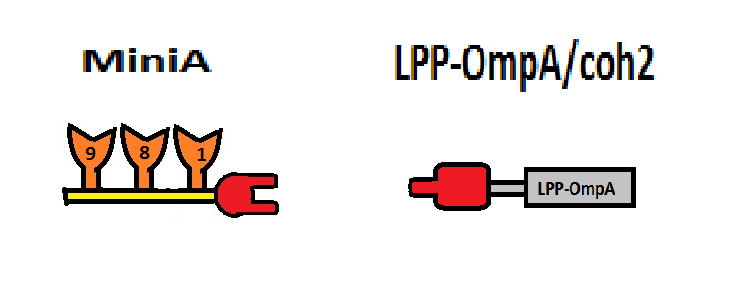Team:Evry/FrenchFrog
From 2012.igem.org
| Line 13: | Line 13: | ||
<br /> | <br /> | ||
| - | [[File: | + | [[File:Igem-logo.png|left|60px]] |
So far, the engineering of living organsims has moslty been focuced on bacteria, as beeing the simplest organism to engineer. iGEM teams and laboratories have focuced on unicellular organisms in order to understand the principles underlying biology and has developped a quite comprehensive database of molecular part. Some work has been started on engineering mammalian cells and a few iGEM team had followed this trend. It is generally admitted that synthetic biology is now heading toward rational design of mulicellular organisms with numerous applications ranging from gene therapy, drug production or environmental applications. This year, our team would like to be part of that challenge. | So far, the engineering of living organsims has moslty been focuced on bacteria, as beeing the simplest organism to engineer. iGEM teams and laboratories have focuced on unicellular organisms in order to understand the principles underlying biology and has developped a quite comprehensive database of molecular part. Some work has been started on engineering mammalian cells and a few iGEM team had followed this trend. It is generally admitted that synthetic biology is now heading toward rational design of mulicellular organisms with numerous applications ranging from gene therapy, drug production or environmental applications. This year, our team would like to be part of that challenge. | ||
Revision as of 04:57, 16 July 2012
The French froggies: an artificial hormonal system in tadpoles
Establishment of a new chassis
So far, the engineering of living organsims has moslty been focuced on bacteria, as beeing the simplest organism to engineer. iGEM teams and laboratories have focuced on unicellular organisms in order to understand the principles underlying biology and has developped a quite comprehensive database of molecular part. Some work has been started on engineering mammalian cells and a few iGEM team had followed this trend. It is generally admitted that synthetic biology is now heading toward rational design of mulicellular organisms with numerous applications ranging from gene therapy, drug production or environmental applications. This year, our team would like to be part of that challenge.
Frogs, as well as nematodes, flies and mouses has been used for a long time as organisms of choice to study the fundamental principles of biology in multicellular organisms, and an all range of genetic and micro injection techniques has been developped for them. But so far, very little work has been done in engineering de-novo systems in these organisms, as we are aming at in synthetic biology.
This year, the Evry iGEM team iq going to be the very first iGEM team to work on a vertabrate, and our work is focuced both on developping genetic tools and standard protocols for the iGEM community. We beleive the tadpole is a chassis of choice for iGEM on multi cellular organisms, and we would like to demonstrate the feasibility of engineering Xenopus Laevis and Xenopus trocicalis in the iGEM time and technological constraints through the development of a very original project: the development of a new orthogonal hormonal system in these organisms.
Auxin as a new hormonal system in Xenopus
An inter tissues communication
Auxin Inductible Degron system
 "
"

